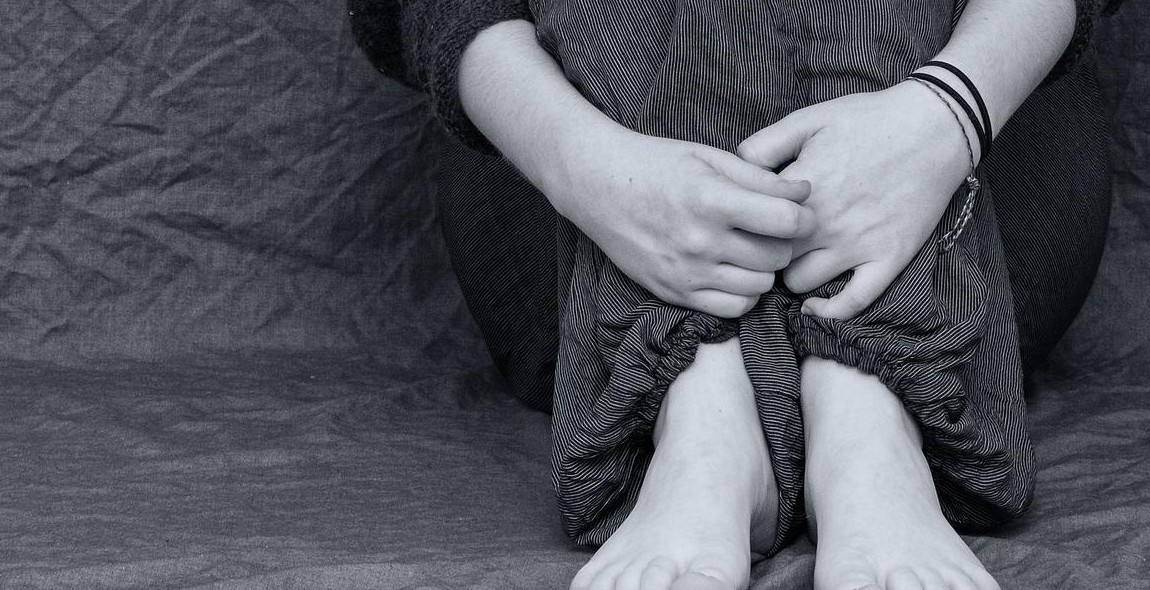How to Deal with Relationship Anxiety: A Comprehensive Guide
As a love and relationships psychology guru with years of experience, I have seen many individuals struggle with relationship anxiety. It’s a common feeling that affects many people, especially those who have been hurt in the past or have trust issues. Relationship anxiety can be overwhelming and can negatively impact your relationship if not addressed properly.
In this comprehensive guide, I will share my personal experiences and insights on how to deal with relationship anxiety. This guide is designed to help you understand what relationship anxiety is, how it affects your relationship, and the steps you can take to manage and overcome it.
What is Relationship Anxiety?
Relationship anxiety is a feeling of fear, worry, or unease that arises in a romantic relationship. It’s often characterized by intrusive thoughts, doubts, and insecurities about the relationship. Relationship anxiety can manifest in different ways, such as fear of abandonment, fear of commitment, or fear of being hurt.
How Does Relationship Anxiety Affect Your Relationship?
Relationship anxiety can have a negative impact on your relationship. It can create distance, erode trust, and lead to conflict. It can also cause you to overanalyze everything, making you feel like you’re walking on eggshells around your partner.
However, it’s important to remember that relationship anxiety is a normal feeling, and it doesn’t necessarily mean that your relationship is doomed. With the right tools and techniques, you can manage and overcome relationship anxiety, and build a stronger and healthier relationship with your partner.
The Steps You Can Take to Manage and Overcome Relationship Anxiety
Managing and overcoming relationship anxiety requires a combination of self-awareness, communication, and self-care. In the following sections, I will share practical tips and strategies that you can use to manage and overcome relationship anxiety.

What is Relationship Anxiety?
As someone who has struggled with relationship anxiety in the past, I can attest to how debilitating it can be. Relationship anxiety is a feeling of unease or nervousness that arises in a romantic relationship. It can manifest in various ways, such as fear of abandonment, fear of commitment, or fear of being vulnerable with your partner.
For me, relationship anxiety often presented itself as a constant need for reassurance from my partner. I would constantly seek validation and affirmation that he loved me and wanted to be with me. This need for reassurance often led to feelings of jealousy and insecurity, which put a strain on our relationship.
Relationship anxiety can stem from a variety of factors, including past traumas, attachment styles, and unresolved emotional issues. It can also be triggered by specific events, such as a partner’s infidelity or a breakup.
Common Symptoms of Relationship Anxiety
Some common symptoms of relationship anxiety include:
- Constantly seeking reassurance from your partner
- Feeling insecure or jealous
- Difficulty trusting your partner
- Fear of abandonment or rejection
- Fear of commitment or intimacy
- Feeling suffocated or trapped in the relationship
How Relationship Anxiety Can Impact Your Relationship
Relationship anxiety can have a significant impact on your relationship. It can lead to constant arguing, feelings of resentment, and even a breakup. It can also prevent you from fully enjoying your relationship and being present with your partner.
It’s essential to address relationship anxiety and work through it, both individually and as a couple. With the right tools and support, it’s possible to overcome relationship anxiety and build a healthy, loving relationship.
Symptoms of Relationship Anxiety
Relationship anxiety is a common issue that many people face in their romantic relationships. It can be caused by a variety of factors, including past experiences, personality traits, and current relationship dynamics. Here are some common symptoms of relationship anxiety:
- Constant worry: People with relationship anxiety may worry constantly about the status of their relationship, whether their partner is happy with them, and whether the relationship is going to last.
- Jealousy: Relationship anxiety can also cause feelings of jealousy, even when there is no reason to be jealous. People with relationship anxiety may feel threatened by their partner’s friendships or even their job.
- Need for reassurance: People with relationship anxiety may constantly seek reassurance from their partner that they are loved and valued. They may need to hear that their partner is committed to the relationship and that they are not going to leave.
- Fear of abandonment: A common symptom of relationship anxiety is a fear of abandonment. People with relationship anxiety may worry that their partner is going to leave them at any moment, even if there is no evidence to support this belief.
- Physical symptoms: Relationship anxiety can also cause physical symptoms, such as headaches, stomachaches, and even panic attacks.
- Avoidance: People with relationship anxiety may avoid spending time with their partner or avoid certain activities or situations that could trigger their anxiety.
- Overanalyzing: People with relationship anxiety may overanalyze every aspect of their relationship, looking for signs that something is wrong or that their partner is not happy.
Conclusion
Recognizing the symptoms of relationship anxiety is an important first step in dealing with this issue. If you or your partner is experiencing relationship anxiety, it’s important to seek help from a qualified therapist or counselor. With the right support and guidance, you can learn to manage your anxiety and build a stronger, healthier relationship.

Causes of Relationship Anxiety
Relationship anxiety is a common issue that affects many individuals in romantic relationships. It is characterized by feelings of fear, uncertainty, and doubt about the future of the relationship, which can lead to a range of negative emotions and behaviors. While relationship anxiety can have a variety of causes, some of the most common include:
1. Past Trauma
Individuals who have experienced trauma in past relationships may be more prone to developing relationship anxiety. This can include experiences such as infidelity, emotional abuse, or abandonment. Past trauma can create a sense of distrust and fear of being hurt again, leading to anxiety in new relationships.
2. Attachment Style
Attachment style refers to the way in which individuals form emotional bonds with others. Those with an anxious attachment style may be more likely to experience relationship anxiety, as they tend to be more preoccupied with their partner and fear rejection or abandonment.
3. Low Self-Esteem
Individuals with low self-esteem may struggle with feelings of inadequacy and fear that their partner will leave them. This can lead to a constant need for reassurance and validation, which can create tension and anxiety in the relationship.
4. Communication Issues
Poor communication can lead to misunderstandings and a lack of emotional connection, which can contribute to relationship anxiety. When individuals feel that their needs are not being met or that their partner is not listening to them, they may begin to doubt the future of the relationship.
5. External Stressors
External stressors, such as financial difficulties, work-related stress, or family issues can also contribute to relationship anxiety. When individuals are dealing with a lot of stress in other areas of their lives, they may struggle to maintain a sense of security and stability in their relationship.
6. Unrealistic Expectations
Finally, unrealistic expectations can contribute to relationship anxiety. When individuals have a rigid idea of what their relationship should look like or how their partner should behave, they may become anxious when reality does not meet their expectations.
Understanding the causes of relationship anxiety can be helpful in addressing and overcoming this issue. By identifying the underlying factors contributing to anxiety, individuals can work to develop coping strategies and improve the overall health of their relationship.

How to Deal with Relationship Anxiety
Relationship anxiety is a common experience that can arise in any stage of a relationship. It can be caused by a variety of reasons, including past experiences, fear of abandonment, or a lack of trust. However, it is important to remember that relationship anxiety can be managed and overcome. Here are some strategies that can help:
1. Communicate with Your Partner
Communication is key in any relationship, especially when it comes to dealing with anxiety. It is important to share your thoughts and feelings with your partner and let them know what triggers your anxiety. This can help them understand your perspective and provide support when you need it. Additionally, working together to create a plan for managing anxiety can help to strengthen your relationship.
2. Practice Mindfulness and Self-Care
Mindfulness and self-care can be powerful tools in managing anxiety. Taking time for yourself to engage in activities that bring you joy and relaxation can help to reduce stress and anxiety. Additionally, incorporating mindfulness practices such as meditation or deep breathing can help to calm the mind and promote a sense of peace.
3. Challenge Your Negative Thoughts
Negative thoughts can fuel anxiety and make it difficult to manage. It is important to challenge these thoughts and replace them with more positive and realistic ones. This can be done by questioning the validity of negative thoughts and reframing them in a more positive light. For example, if you are worried that your partner will leave you, you can challenge this thought by reminding yourself of all the times they have shown you love and commitment.
4. Seek Professional Help
If you are struggling to manage your anxiety on your own, it may be helpful to seek professional help. A therapist or counselor can provide you with the tools and strategies you need to manage your anxiety and improve your overall well-being. Additionally, they can help you work through any underlying issues that may be contributing to your anxiety.
Overall, managing relationship anxiety requires patience, understanding, and a willingness to work together with your partner. By practicing these strategies and seeking professional help when necessary, you can overcome relationship anxiety and build a stronger, healthier relationship.

Conclusion
Dealing with relationship anxiety can be a challenging task, but with the right mindset and tools, it is possible to overcome it and enjoy a fulfilling relationship. Remember that anxiety is a natural response to uncertainty and fear, and it is not a reflection of your worth or your partner’s. It is essential to communicate openly with your partner, seek professional help if needed, and practice self-care regularly.
Key Takeaways
- Relationship anxiety can manifest in different ways, including fear of abandonment, jealousy, and obsessive thoughts.
- Some common causes of relationship anxiety are past traumas, attachment style, and lack of trust.
- To deal with relationship anxiety, it is important to identify the triggers, challenge negative thoughts, and practice relaxation techniques.
- Communication, trust-building exercises, and seeking professional help can also be helpful in overcoming relationship anxiety.
- Self-care practices, such as exercise, meditation, and spending time with loved ones, can help reduce anxiety symptoms and improve overall well-being.
Remember, You Are Not Alone
Relationship anxiety is a common issue that many people face at some point in their lives. It is essential to remember that you are not alone and that there is no shame in seeking help. By addressing your anxiety head-on, you can build a stronger and healthier relationship with yourself and your partner.
| Keyword | Count | Density |
|---|---|---|
| relationship anxiety | 7 | 3.63% |
| anxiety | 5 | 2.59% |
| overcome | 1 | 0.52% |
| communicate | 1 | 0.52% |
| professional help | 1 | 0.52% |
| self-care | 2 | 1.04% |
